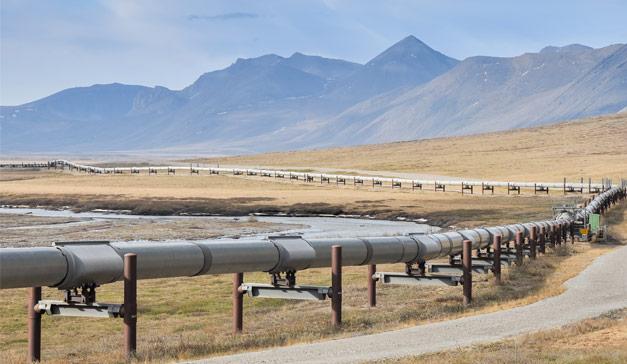One of the few spoken regional trade blocs of Africa is the Economic Community of Central African States (ECCAS).
Despite such little being spoken of this resource rich area, it is home to some of Africa’s richest countries, yet it has for decades encountered various obstacles that have stunted social and economic progress. Human capital development is a major issue in the region, along with armed conflicts, natural disasters, and health crises.
As a result, the region’s economy have not been able to flourish despite their abundance of natural resources.
Oil in Central Africa
Roughly 30% of Africa’s crude oil is located in the ECCAS region.
Angola, located there, just surpassed Nigeria as Africa’s largest oil producer, pumping out about1.16 million barrels per day.
Chad, the Congo, Equatorial Guinea, Gabon, and Cameroon are some of the other oil-producing countries in the area. Yet the resource has not contributed as much as projected to economic growth.
Experts believe these oil reserves have the potential to provide considerable government revenues, create jobs, contribute to economic growth, and ultimately reduce poverty if the appropriate policies and institutional capability are in place.
Central Africa’s sluggish economic growth and development are largely to blame for this set back.
The economy of the region comprising the Economic Community of Central African States (ECCAS), together with human underdevelopment and depletion of natural resources, have been marginalised, and formal regional integration exercises aspire to play a leadership role in reversing this trend.
Mining in East Africa
The mining industry offers countries in the region a chance to attract new investments and generate tax income. For instance, it is believed that the undeveloped mineral resources in the Democratic Republic of the Congo (DRC) are worth U$24 trillion.
Metals like gold, diamonds, cobalt, and zinc are among them. Coltan, short for columbite-tantalite, is another important mineral mined in the DRC.
Gold and diamonds are among the many natural resources that the Central African Republic(CAR) has in plenty.
Although gold is the country’s second most exported product, illegal gold mining has led to environmental degradation and has been a source of crime, including human trafficking.
Angola, Burundi, Cameroon, the Central African Republic, Chad, the Congo, the Democratic Republic of the Congo, Equatorial Guinea, Gabon, Rwanda, Sao Tome and Principe, and the other ECCAS countries are all rich in other vital minerals that governments might potentially benefit from.
Agriculture and industrial growth in East Africa
In July of 2013, ECCAS formalised the Regional the Comprehensive African Agricultural Development Programme (CAADP)An initiative of the African Union’s Agenda 2063’s continental scope, the CAADP seeks to aid African nations in their fight against hunger and poverty by fostering economic growth through agriculture-led development.
In the pursuit of regional and continental integration, a performance-based Memorandum of Understanding (MoU) was signed.
The agreement’s stated goal is to lay the groundwork for future collaboration based on the efficient distribution of resources toward the completion of high-impact initiatives.
Targeted communication initiatives have reached a wide range of stakeholders, from the government and the commercial sector to farmers, in particular women, youth, and small-holder farmers.
According to the African Union Development Agency, ECCAS’s increased exposure and credibility stem from its status as the implementing partner for agricultural activities in member states and the region.
As of right now, the CAADP process is officially acknowledged as the framework for agricultural progress across Africa.
Enhanced collaboration will allow the region to achieve a well-rounded and self-sufficient economic development, especially in the areas of manufacturing, transportation, information technology, energy, agriculture, and natural resources.
There are also issues pertaining to human resources, money, trade, customs, and industrial development.
In the meantime, an initiative to aid in creating a Central African electricity regulatory framework and governing body is being put into action (PADCRE).
As part of a larger attempt at regional integration, this is meant to increase member states’ energy security by increasing access to affordable, reliable energy.
With an end date of 2024, the African Development Bank (AfDB)-backed plan intends to improve the administration and long-term viability of Central Africa’s power industry.
To achieve this goal, AfDB recommends that an efficient, standardised, and transparent policy, institutional, and regulatory framework be created for the sector in ECCAS Member States.
This framework will define and establish clear and harmonised strategies, policies, principles, rules, processes, and standards for adoption by the sector’s stakeholders.
The expansion of manufacturing in the area will be aided by the availability of cheap, consistent electricity.
Trade in East Africa
The ECCAS region has as much to gain from the African Continental Free Trade Area as any other African country (AfCFTA).
As a result, the area can perhaps entice investors from elsewhere in Africa, which would boost the value added to its primary exports.
However, experts agree that in order to take use of the region’s enormous potential, improvements in security, stability, and governance are essential.
The United Nations reports that the recent elections in the countries of Central Africa offer promising signs of progress toward democracy; but, deteriorating security could threaten these gains.
The UN has noted significant progress towards democracy and rule of law in recent elections in Angola, the Congo, So Tomé and Principe, and Equatorial Guinea.
However, in the face of continuous security threats, it was necessary to strengthen international and regional collaboration in order to develop and sustain peace and democraticgains in Central Africa.
